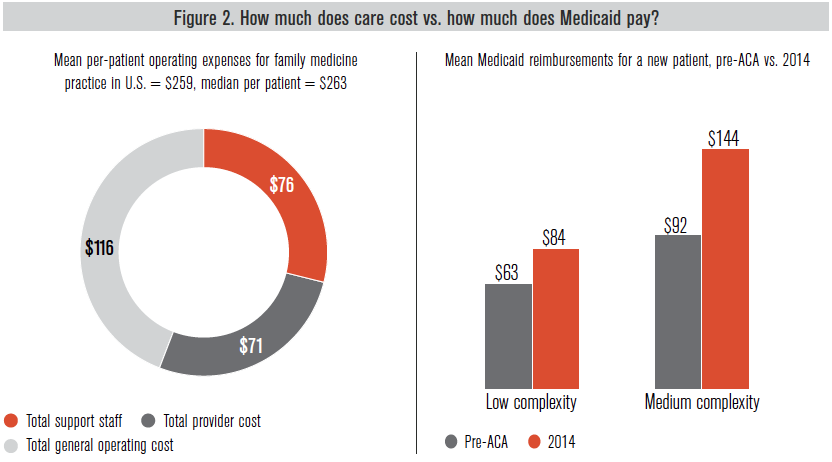Is Medicaid access about to get worse in Illinois?
Illinois’ Medicaid reimbursement rates are dropping back to about 54 percent of what the federal Medicare program pays for similar visits and procedures.
An Illinois Policy Institute report predicted in July that the Affordable Care Act, or ACA, would make it more difficult for Medicaid patients to get access to health care. A Dec. 27 New York Times story raised similar concerns.
The ACA dramatically expanded the Medicaid program with little regard for ensuring timely access to that care. To address the problem of limited access to doctors under the Medicaid program, the law temporarily provided for higher fees to some doctors for some routine primary-care services. But temporarily boosting a narrow subset of physicians’ reimbursements in hopes of greater participation in the Medicaid program was a gimmick that did nothing to address the underlying problems of accessing care in a broken system.
About 500,000 people in Illinois have been added to the Medicaid rolls in 2014, since Illinois Democrats supported the program expansion along party lines as part of the ACA. But when the ACA was signed into law, about one-third of Illinois physicians were already refusing new Medicaid patients. Now that Medicaid enrollment has ballooned by half a million participants, it will likely become even harder to get access to needed care under the program in Illinois.
On Jan. 1, 2015, Medicaid reimbursement rates reverted back to 2012 rates, as the federal “bump” ended on Dec. 31, 2014. The reimbursement rates paid to physicians are often below the actual cost of providing that care. Rates for routine primary-care services will drop back from 100 percent to pre-ACA levels.

Illinois’ Medicaid reimbursement rates are dropping back to about 54 percent of what the federal Medicare program pays for similar visits and procedures. Not only is this rate often below the actual cost of providing that care, but Illinois is also notoriously slow in paying physicians for the Medicaid services they are already providing.
The state can ill afford to pay its share of higher reimbursements to physicians at a level that would entice a significantly greater share of physician participation. That is why approaches such as sliding-scale premium assistance, where nonelderly and nondisabled patients can purchase health insurance based on price to best meet their own individual needs and preferences, as well as control their health savings account, should be explored. Those who were willing and able could also supplement their coverage plans using their own resources.
The only consistent winners in this approach, up to now, have been the politicians who enthusiastically take political credit for passing out Medicaid cards, but do so without providing patients true access to care or control over health-care decisions.
At a minimum, the same Illinois lawmakers who supported the Medicaid expansion should be willing to demonstrate how they are going to provide access to care – and not merely provide patients a Medicaid card.
